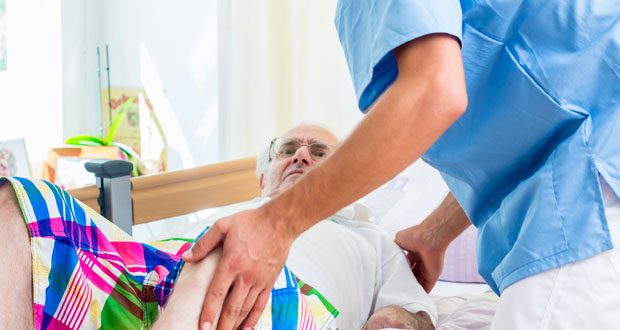Alternating air pressure mattresses (APAMs), not two-hourly repositioning, is the key to preventing bed sores.
What’s more, the constant mandated repositioning of residents in aged care could be a form of unintentional abuse and ultimately unlawful.
This is according to a new study coming out of UNSW. Published in Bioethical Enquiry, it found that far from preventing sores, the repositioning practice can cause behavioural problems because of the sleep interference.
“My first thought was that the practice of two-hourly repositioning would cause sleep deprivation and that it is simply torturous,” said study author Professor Mary-Louise McLaws of UNSW’s School of Public Health and Community Medicine.
“It wasn’t a surprise when residents were classified as having ‘behaviours of concern’ and then chemically or physically restrained.”
McLaws and her co-authors suggest that a better and cost-effective alternative would be the APAMs.
Originally thought to be an expensive outlay, and without substantial evidence into the effectiveness of the mattresses, the new study found the actual cost of these devices to be around $1.40 a day per resident and pointed out that they are available on Government contract.
“A study carried out decades ago showed that APAMs were more cost-effective than the practice of repositioning. And when you look at the costs of prevention, they are substantially lower than those required to treat severe pressure ulcers.
“These mattresses relieve pressure all over the body every few minutes, continuously and gently so as not to wake or disturb the sleeper – at a frequency that human repositioning cannot match,” said McLaws.
The authors also recommended cessation of chemical and physical restraints as the resultant inactivity also leads to ulcers. They also made submissions to the forthcoming Royal Commission on the findings of their work.
Co-author UNSW’s Catherine Sharp said: “We are very optimistic that we will see two-hourly repositioning of residents stopped in favour of using APAMs. This will not only improve the wellbeing of our elderly aged care residents and elderly in hospitals and the community, but it will reduce costs and levels of unnecessary stress experienced by residents, facility staff and families alike.”
Do you have an idea for a story?Email [email protected]
 Aged Care Insite Australia's number one aged care news source
Aged Care Insite Australia's number one aged care news source


The alternating pressure bed is a wonderful idea the only reservation I have about it is if the facility decides to cut their staff because of less time needed for re positioning. I would hope that the saving in time would be of benefit towards more client contact.